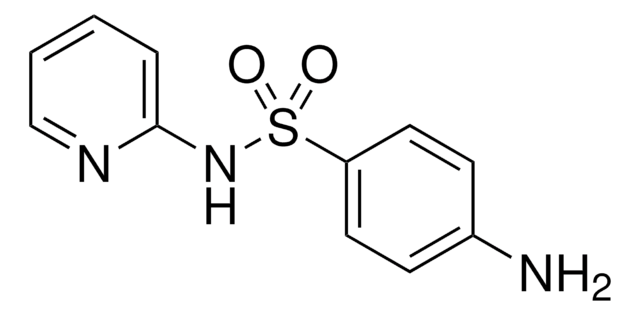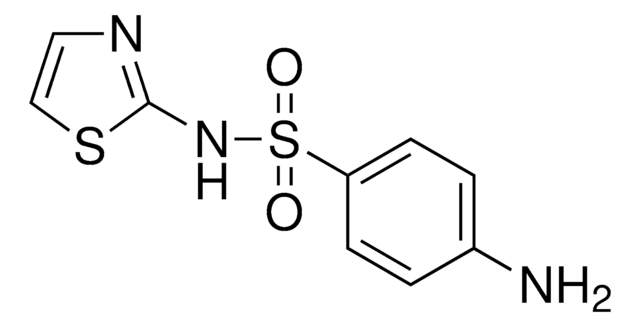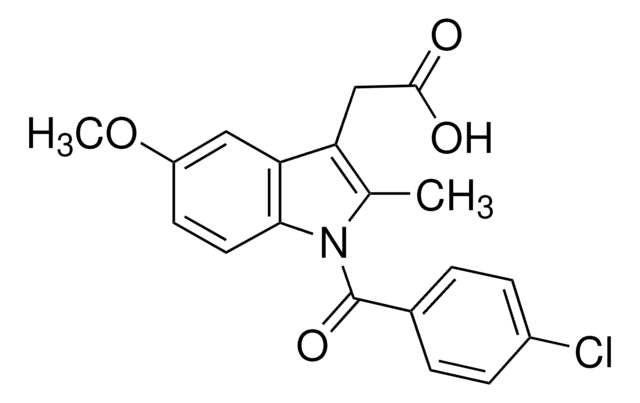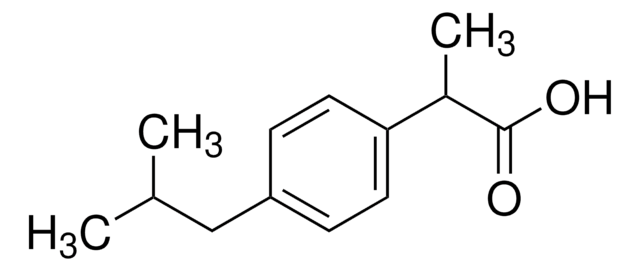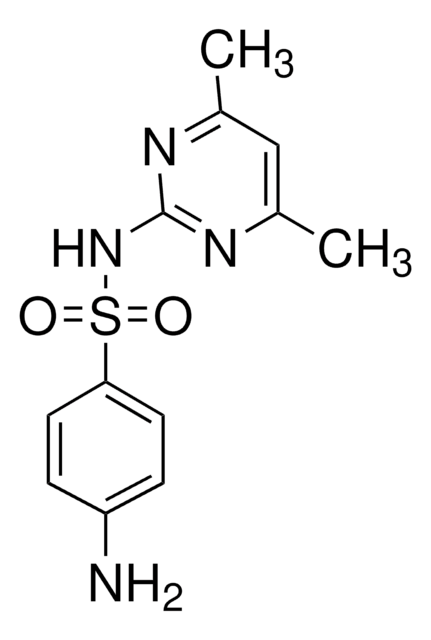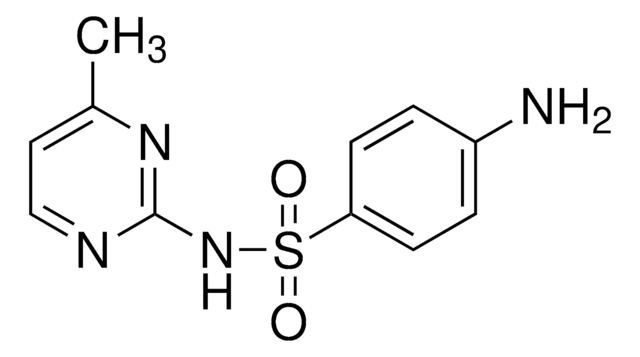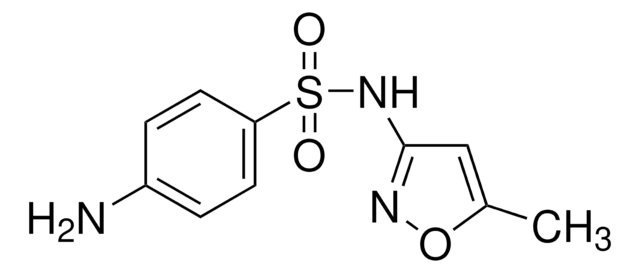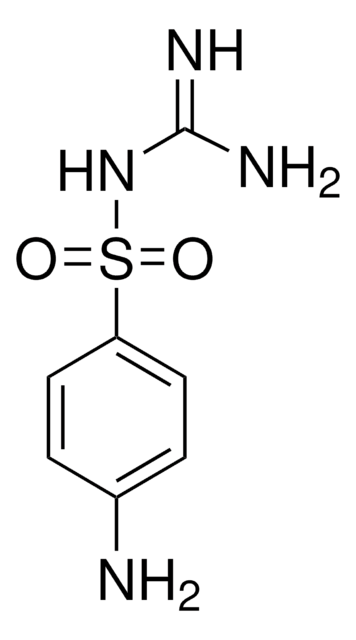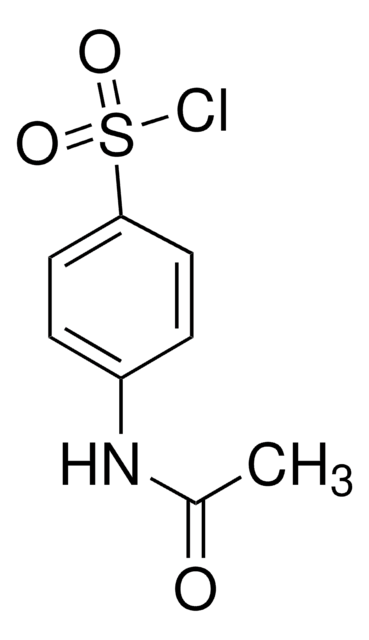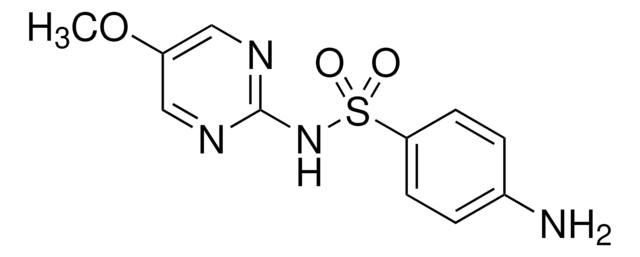S9876
Sulfathiazole
Synonyme(s) :
4-amino-N-2-thiazolylbenzènesulfonamide
About This Item
Produits recommandés
Qualité
analytical standard
Niveau de qualité
Agence
EPA 1694
Forme
powder
Technique(s)
HPLC: suitable
gas chromatography (GC): suitable
Pf
200-202 °C (lit.)
Application(s)
clinical testing
Chaîne SMILES
Nc1ccc(cc1)S(=O)(=O)Nc2nccs2
InChI
1S/C9H9N3O2S2/c10-7-1-3-8(4-2-7)16(13,14)12-9-11-5-6-15-9/h1-6H,10H2,(H,11,12)
Clé InChI
JNMRHUJNCSQMMB-UHFFFAOYSA-N
Vous recherchez des produits similaires ? Visite Guide de comparaison des produits
Description générale
Application
Actions biochimiques/physiologiques
Mode of Action: Inhibits folic acid synthesis in prokaryotes.
Anti-microbial Spectrum: Gram positive, Gram negative, Chlamydia
Mode of Resistance: Alteration of dihydropteroate synthase or alternative pathway for folic acid synthesis.
Mention d'avertissement
Warning
Mentions de danger
Conseils de prudence
Classification des risques
Aquatic Chronic 3 - Eye Irrit. 2 - Skin Irrit. 2 - STOT SE 3
Organes cibles
Respiratory system
Code de la classe de stockage
11 - Combustible Solids
Classe de danger pour l'eau (WGK)
WGK 2
Équipement de protection individuelle
dust mask type N95 (US), Eyeshields, Gloves
Faites votre choix parmi les versions les plus récentes :
Déjà en possession de ce produit ?
Retrouvez la documentation relative aux produits que vous avez récemment achetés dans la Bibliothèque de documents.
Les clients ont également consulté
Notre équipe de scientifiques dispose d'une expérience dans tous les secteurs de la recherche, notamment en sciences de la vie, science des matériaux, synthèse chimique, chromatographie, analyse et dans de nombreux autres domaines..
Contacter notre Service technique
